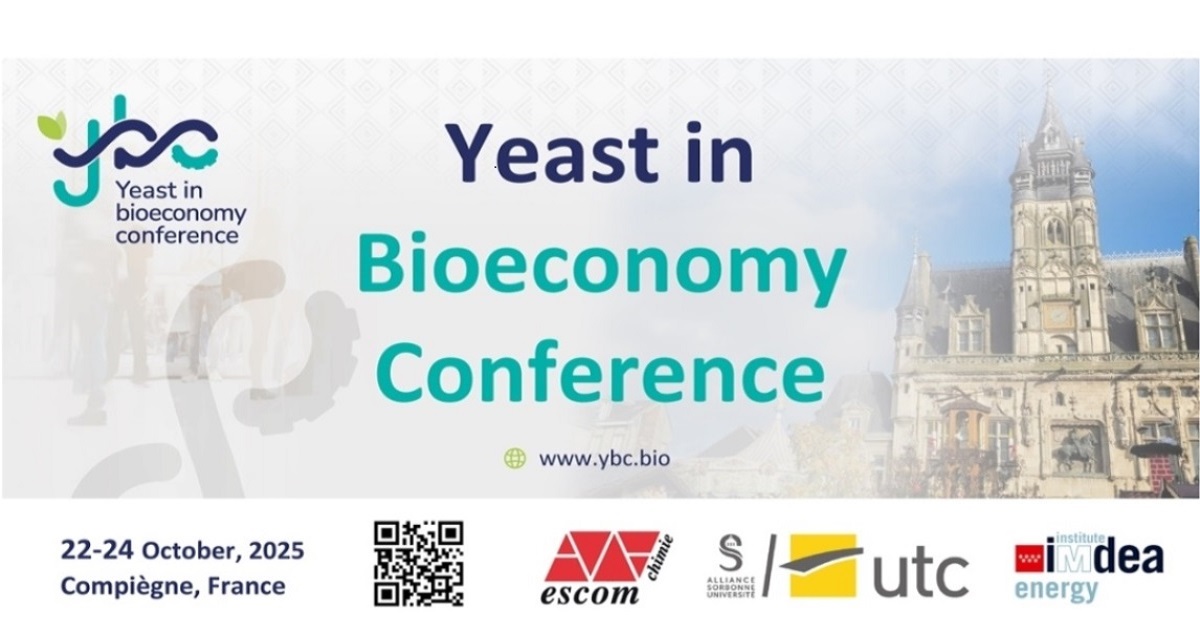- 3.3Impact Factor
- 5.7CiteScore
- 16 daysTime to First Decision
YBC2025: Yeast in Bioeconomy
This special issue belongs to the section “Yeast“.
Special Issue Information
Dear Colleagues,
The field of yeast-based bioeconomy has become a focal point in biotechnological innovation, offering sustainable solutions that address global challenges related to resource utilization and sustainability. Yeast systems have demonstrated remarkable potential in areas such as metabolic engineering for enhanced biosynthetic pathways, fermentation technology for the production of high-value compounds, and scalable process optimization for industrial applications. The "Yeast in Bioeconomy Conference 2025", held in Compiègne, France, from October 22nd to 24th, brought together leading researchers and industry representatives for the exploration of these topics and the dissemination of groundbreaking advancements.
The link to the conference can be found below: https://ybc.bio/.
This Special Issue of Fermentation welcomes contributions that build upon the discussions and discoveries presented at the conference. We welcome original research articles, reviews, and case studies that address key topics such as the optimization of fermentation processes, downstream processing innovations, bioreactor design, and life cycle and techno-economic assessments of bio-based yeast production systems. We particularly welcome the submission of articles that focus on the industrialization and market integration of yeast-based technologies.
Through this Special Issue, we aim to provide a comprehensive overview of recent developments in yeast-based bioeconomy and foster further advancements in this impactful field. We look forward to receiving your contributions and thank you in advance for your efforts in sharing your research with the broader scientific community.
Dr. Mohamed Koubaa
Dr. Elia Tomás Pejó
Guest Editors
Manuscript Submission Information
Manuscripts should be submitted online at www.mdpi.com by registering and logging in to this website. Once you are registered, click here to go to the submission form. Manuscripts can be submitted until the deadline. All submissions that pass pre-check are peer-reviewed. Accepted papers will be published continuously in the journal (as soon as accepted) and will be listed together on the special issue website. Research articles, review articles as well as short communications are invited. For planned papers, a title and short abstract (about 250 words) can be sent to the Editorial Office for assessment.
Submitted manuscripts should not have been published previously, nor be under consideration for publication elsewhere (except conference proceedings papers). All manuscripts are thoroughly refereed through a single-blind peer-review process. A guide for authors and other relevant information for submission of manuscripts is available on the Instructions for Authors page. Fermentation is an international peer-reviewed open access monthly journal published by MDPI.
Please visit the Instructions for Authors page before submitting a manuscript. The Article Processing Charge (APC) for publication in this open access journal is 2100 CHF (Swiss Francs). Submitted papers should be well formatted and use good English. Authors may use MDPI's English editing service prior to publication or during author revisions.
Keywords
- yeast bioeconomy
- fermentation technology
- techno-economic assessment
- life cycle analysis
- process scale-up

Benefits of Publishing in a Special Issue
- Ease of navigation: Grouping papers by topic helps scholars navigate broad scope journals more efficiently.
- Greater discoverability: Special Issues support the reach and impact of scientific research. Articles in Special Issues are more discoverable and cited more frequently.
- Expansion of research network: Special Issues facilitate connections among authors, fostering scientific collaborations.
- External promotion: Articles in Special Issues are often promoted through the journal's social media, increasing their visibility.
- e-Book format: Special Issues with more than 10 articles can be published as dedicated e-books, ensuring wide and rapid dissemination.

